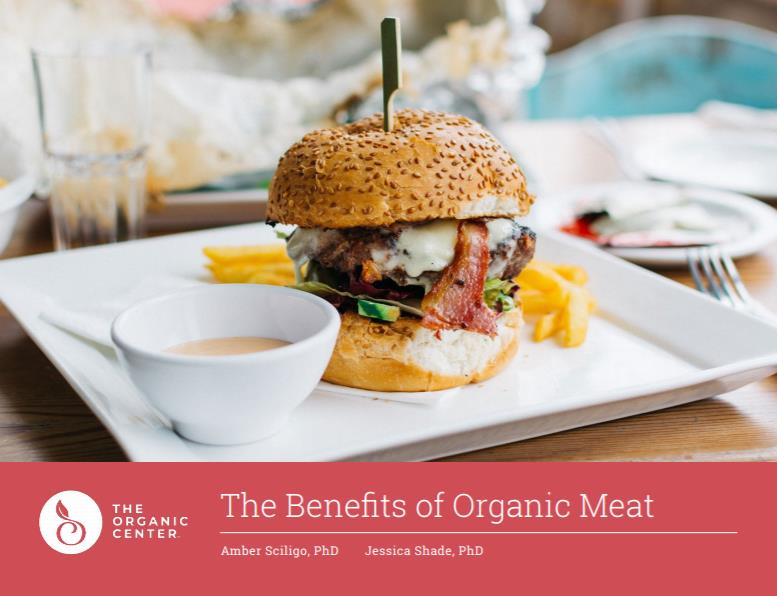New report shows organic meat better for people and planet

By vast
Published: June 2, 2020
Category: Organic News, The Organic & Non-GMO Report Newsletter
When you eat meat, choose organic, says report from The Organic Center
The Organic Center recently released a report that shows that when you eat meat, choosing organic can make a difference for our health, the health of our communities and the health of our environment.
In “The Benefits of Organic Meat*,” The Organic Center gathers together scientific literature to show the differences in the way organic meat is produced, and why those differences are critical to the health of the animals, the health and safety of consumers, the health of the soil and to the impacts on climate change. See full report here.
Specifically, the report finds the organic standards followed by organic meat producers result in:
- Greater nutritional benefits in organic meat—more good omega-3 fatty acids, less cholesterol, and more antioxidants;
- A lower risk of exposure to antibiotics, growth hormones and pesticides;
- Fewer negative effects on the environment and less of a contributor to climate change.
“Consumers have enough to worry about these days, and we want them to know that when they eat meat, choosing organic is especially important,” said Dr. Jessica Shade, Director of Science Programs for The Organic Center. “Our report synthesizes scientific findings from around the world that show a multitude of benefits for people and the planet from choosing organic.”
Meat production in general can have cascading effects on human health, animal welfare and the environment. There is a long chain of resources that support the animals used for meat production. Choosing meat at the grocery store with the USDA Organic seal—and the strict standards for organic production that the seal represents—not only ensures that the animals are raised without synthetic chemicals and have high welfare standards, but also that all the food that animals eat comes from organic sources that support soil health and biodiversity.
Source: The Organic Center
To view full report, visit:








